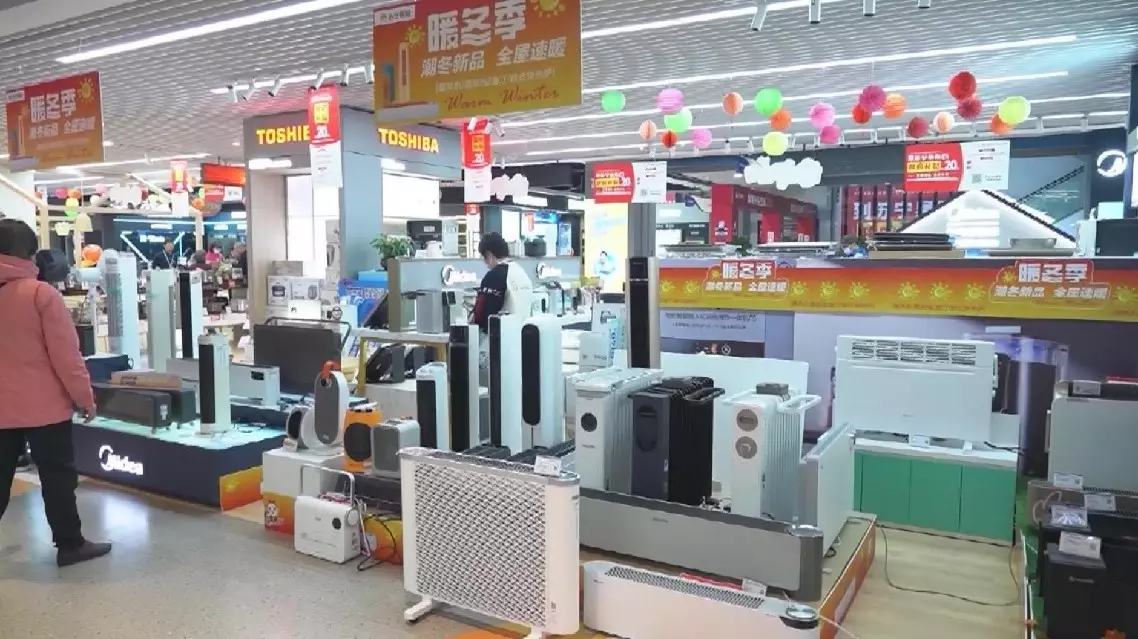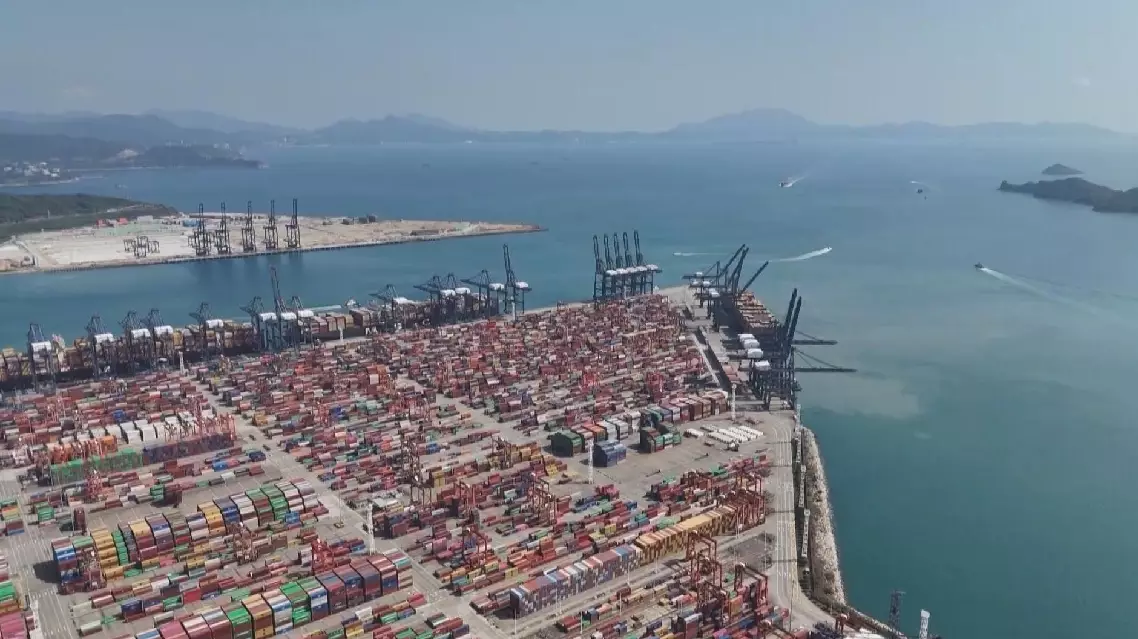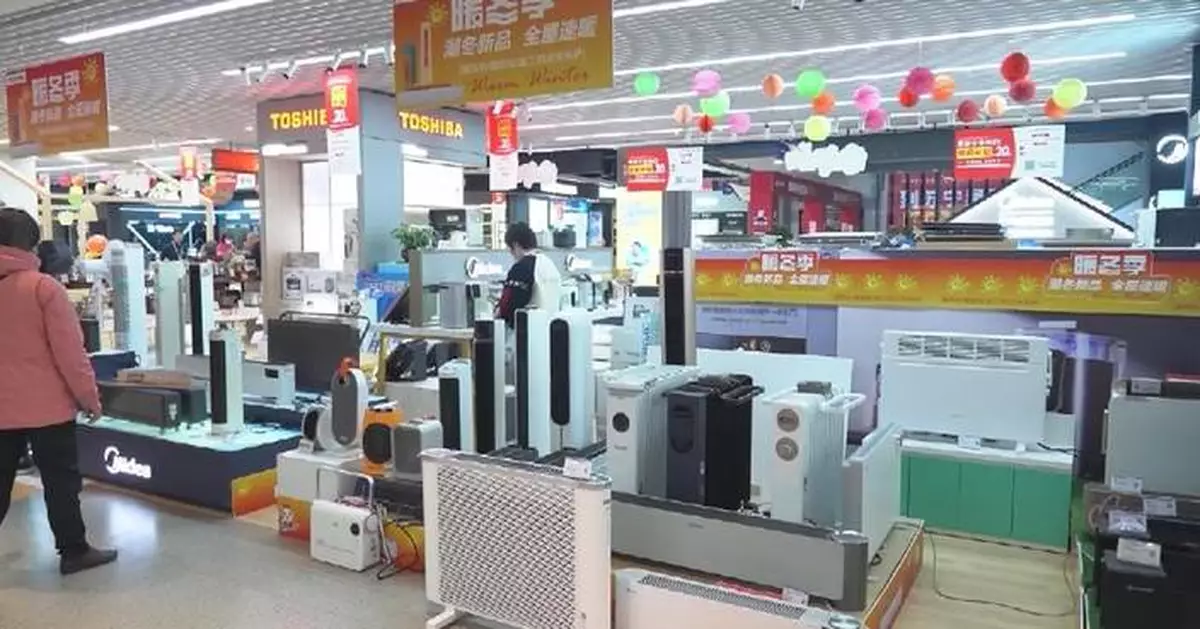China's equipment trade-in subsidy policy introduced earlier this year has played a significant role in encouraging consumers to purchase smarter and more energy-efficient products, particularly home appliances.
China's State Council released an action plan in March to initiate large-scale equipment upgrades and trade-ins of consumer goods -- nearly 15 years since the last such round of renewals.
This policy, part of the Chinese government's green transition strategy, aims to encourage consumers to choose energy-efficient products.
During this year's Double Twelve (December 12) shopping festival, massive discounts coupled with the government's trade-in subsidy policy, have motivated many people to upgrade their home appliances.
"[We've come here] because we heard about the government subsidies. [The appliances] at home are old, so [we've decided] to replace them with new ones," said a resident.
"[I prefer purchasing home appliances] from physical stores. I just like to see the actual products -- things I can see and touch. And I don't want to buy [these kinds of items] online," said another resident.
Again in the second half of this year, the Chinese government introduced a trade-in policy allowing consumers to trade in old home appliances for new ones, offering subsidies for eight categories of products, including refrigerators, air conditioners, and washing machines.
According to the Ministry of Commerce, as of December 7, nearly 3 million customers have purchased related products, driving sales to more than 200 billion yuan (about 27.5 billion U.S. dollars).
The greener and more energy-efficient the home appliances are, the greater discount consumers will enjoy. Besides, Jiangsu Province in east China's and Xinjiang Uygur Autonomous Region in northwest China have expanded the subsidy policy to include 3C digital products, such as computers and mobile phones.
"So far, nearly 300,000 residents in Beijing have already obtained eligibility for the country's trade-in subsidies through the Beijing Suning.com channel. In December, we anticipate that with the support of government subsidies and Suning's own discount and subsidy incentives, sales are expected to achieve a year-on-year growth of over 300 percent," said Wang Zhaotong, director of the Suning Consumer Electronics Sales and Procurement in Beijing.
With the continuous development of artificial intelligence and the Internet of Things, more and more consumers are willing to upgrade their home appliances to live a smarter life.

China's trade-in subsidy policy boosts home appliance sales
Many Chinese logistics companies are ramping up their shipments for the U.S. market following the latest round of mutual tariff adjustments between China and the United States.
China and the United States announced in Geneva on Monday a series of tariff modification measures aimed at easing trade tensions between the world's two largest economies.
The decision followed a two-day China-U.S. high-level meeting on economic and trade affairs, where both sides recognized the importance of their bilateral economic and trade relationship to both countries and the global economy, a joint statement said, noting that both sides emphasized the need for a sustainable, long-term and mutually beneficial economic and trade relationship.
The latest measures have driven up the businesses of shipping companies in Shenzhen City, in south China's Guangdong Province.
In a freight forwarding company in Shenzhen, the manager said that U.S. clients are experiencing shortages of supplies and are pressuring them to expedite shipments on the next available vessels. The staff members are busy organizing export release documents, with stacks of paperwork for shipments to ports in Los Angeles, New York, and Chicago.
"Since the afternoon of May 12, our shipment volume has increased by 40 percent. By June, it should at least be doubled compared to now," said Fu Shengying, deputy general manager of Guangdong Branch of WorldEx Group.
Fuwei Community in Bao'an District, Shenzhen, is an important hub for cross-border e-commerce logistics. Recent data shows that the average daily export shipment volume here has increased by 14 percent over the past three days compared to May 11.
In another logistics company specializing in cross-border e-commerce, orders from U.S. clients have also surged. According to the company, these clients are facing low inventory and need to restock immediately. Over the past few days, the company has received more orders than during the same period in the previous years.
The company manager noted that the surge in order volume has led to increased demand for container ships. Consequently, some shipping companies are starting to adjust their capacity allocation on a global scale.
"Many shipowners had previously adjusted their capacity, but now that a large volume of cargo is suddenly coming in, there is a shortage of capacity. Consequently, freight rates are rising rapidly. Despite this, many clients are still very eager to ship their goods," said Luo Rong, general manager of Shenzhen Branch of Dewell Group.
Yantian Port in Shenzhen is the busiest shipping hub in South China for routes between China and the United States, handling over a quarter of the country's exports to the United States. To meet the surge in demand from U.S. clients, Yantian Port is now scheduling six daily sailings to the United States.
The port staff said that they have recently received inquiries from several shipping companies and are coordinating berth arrangements and schedules. They are prioritizing vessels for U.S. routes at Yantian Port.
Summer is the traditional Christmas ordering season in the United States, and due to previous export suspensions, American sellers' inventories have been declining and urgently need restocking. As a result, demand for Chinese goods is expected to keep rising in the near future.

Chinese logistics enterprises ramp up shipments after China-US tariff adjustment






















































